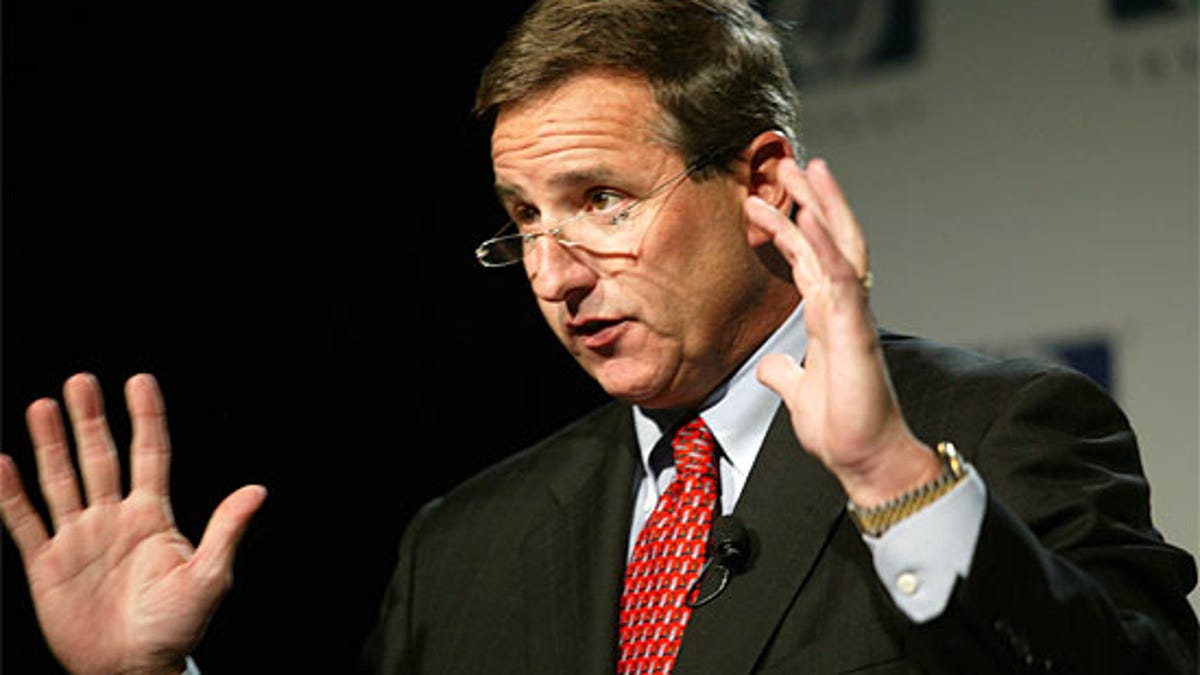Investors grill Hurd on bonuses, competition
The CEO's executive pay and competition from IBM, Cisco, and Apple dominate investors' concerns at annual shareholders meeting.

SANTA CLARA, Calif.--At its annual meeting of shareholders, Hewlett-Packard Chief Executive Mark Hurd assured attendees that despite the economy, the company would be well-positioned against the competition.
"The market is getting tougher; all the hard work we've done up to this point has put us in a favorable position," he told the roughly 90 people in attendance.
There were just two items of business on this year's agenda--10 nominees to the board, all of whom were elected or re-elected, and selection of a new accounting firm--but neither were as contentious as the pointed question-and-answer period during which Hurd fielded questions about HP's competition, as well as his own compensation.
When asked about the potential of rival IBM snatching up Sun, Hurd gave an emphatic "no comment," but on the subject of Cisco--of whom HP is a customer--getting into the server business, he said he remained confident in HP's overall scale, and cited its cost-effective use of the same essential platform on which it builds its servers, blades, and PCs. HP will not be pulling out of all of its partnerships with Cisco, however, despite the new competition.
"I would expect where it makes sense in the market, we'll continue to be a partner of Cisco's," he said.
As technology spending has contracted over the past several months, competition has stiffened. HP's first quarter earnings were down 10 percent from a year ago, its first sign of weakness in an economy that has not been kind to technology hardware makers. The company responded by cutting employee salaries and canceling executive travel perks.
He was also questioned over HP's spending on research. The investor posing the question asked why Apple, a much smaller company with an R&D budget one-third the size of HP's, was able to achieve a market cap larger than HP's.
Hurd called Apple "a competitive company," and admitted that HP could do more to leverage the research going on at HP Labs. He didn't give any indication of what that would be.
At one point though, the questions became personal.
A woman from Marin, Calif., wife of an employee of HP for 37 years, politely asked Hurd how he could justify $42 million in bonuses when many employees were losing their jobs.
Hurd defended the pay package saying it was spread over three years between 2006 and 2008, but that he didn't choose it, the board of directors did, and that those were different times.
"The actions we're taking now are different than we took in 2008. We're being more aggressive." This year, he said, "I would think I would not get that same type of compensation."
Despite their tough questions, many of the shareholders who spoke were former employees and thanked Hurd for his service to HP.

